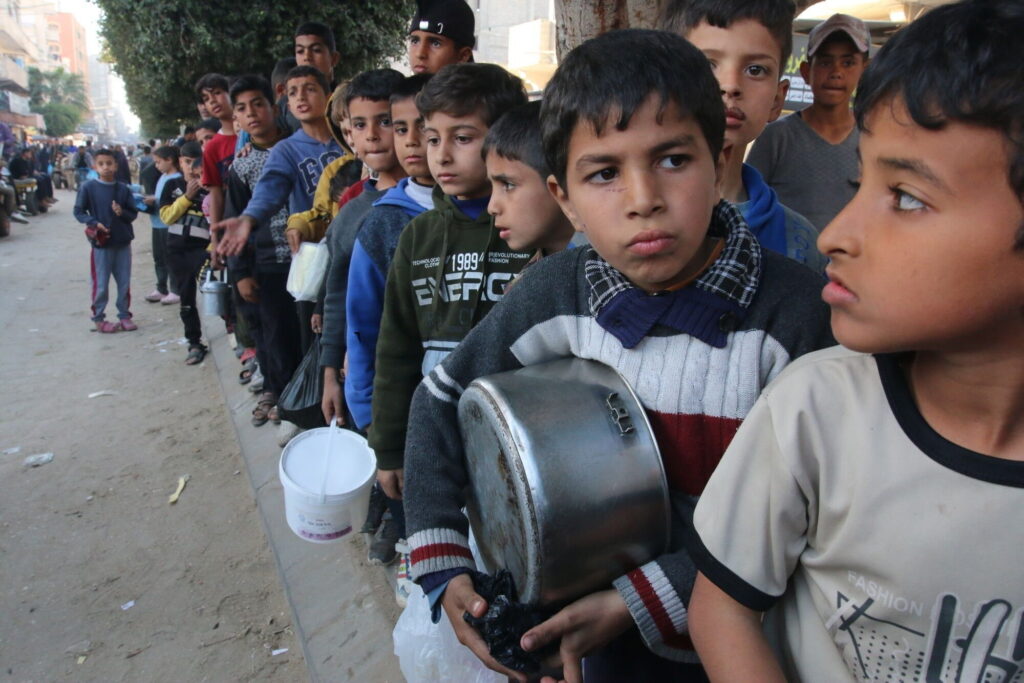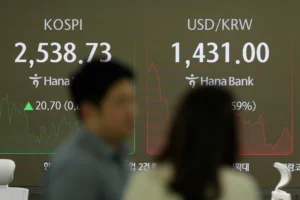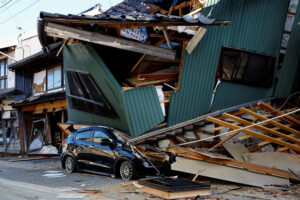Israel’s Suspension of Goods to Gaza Intensifies Humanitarian Crisis
Israel’s decision to halt the flow of goods into Gaza is causing severe hardships for millions of Palestinians, triggering food shortages, bakery closures, and heightened risks to public health. The move, which Israel says is aimed at pressuring Hamas during ceasefire negotiations, has sparked warnings from humanitarian organizations about the catastrophic consequences for civilians.
The suspension affects essential supplies, including food, medicine, and fuel. The United Nations Relief and Works Agency (UNRWA) has condemned the blockade, stating that the lives of Gaza’s 2.3 million people — most of whom rely on aid — hang in the balance. Israel’s actions, which it justifies as a strategic measure, have intensified the suffering of displaced families already grappling with the devastation of war.
Israel’s Blockade and the Collapse of Essential Services
The impact of Israel’s blockade is being felt acutely across the enclave. Abdel-Nasser Al-Ajrami, head of Gaza’s bakers’ union, reported that six out of the 22 remaining bakeries in Gaza had already shut down due to a lack of cooking gas.
“The remaining bakeries may close down in a week or so should they run out of diesel or flour, unless the crossing is reopened to allow the goods to flow,” Al-Ajrami said, emphasizing the dire food crisis.
As the blockade stretches on, essential food prices have skyrocketed, leaving many families struggling to afford even the most basic meals. Israel’s decision to restrict goods has not only increased food insecurity but also disrupted fuel supplies, which are critical for running water systems and hospitals.
The Human Cost of Israel’s Policies
For many Gazans, life has become a daily struggle for survival. Ghada al-Rakab, a displaced mother of six, described her family’s desperate situation:
“What kind of life are we living? No electricity, no water, no life. What else is left there in life?” she lamented from her tent in Khan Younis.
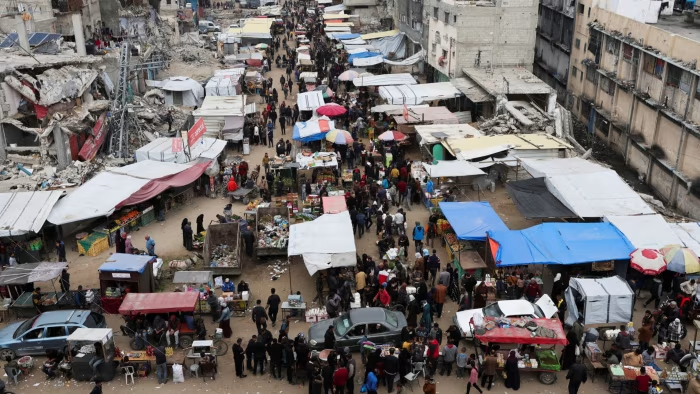
The blockade has worsened already fragile living conditions, with many Palestinians resorting to makeshift ovens to bake bread or rationing their meals to conserve limited resources. With the collapse of sanitation systems and hospitals running out of medical supplies, public health risks are mounting, raising fears of disease outbreaks and worsening malnutrition.
Israel’s Actions and International Reactions
The blockade comes after months of conflict that, according to Gaza health officials, has claimed more than 48,000 Palestinian lives since October 2023. Israel’s military campaign has devastated entire neighborhoods, leaving much of Gaza in ruins.
Humanitarian groups have accused Israel of collective punishment, warning that the continued blockade could lead to an even more catastrophic humanitarian disaster. Meanwhile, Hamas has refused to make concessions under pressure, arguing that Israel’s tactics only deepen resentment and prolong the cycle of violence.
Despite international calls for restraint, Israel maintains that the suspension of goods is a necessary measure to protect its citizens and force Hamas to agree to ceasefire terms. However, with every passing day, the human cost of the blockade grows, amplifying the urgent need for a diplomatic solution.
What Lies Ahead for Israel and Gaza?
As Israel continues to navigate complex security challenges, the situation in Gaza remains perilous. Humanitarian agencies are calling for the immediate reopening of border crossings to prevent further suffering and allow critical aid to reach those in need.
Whether Israel decides to ease restrictions or escalate its measures will shape the future of the region, determining whether Gaza descends further into crisis or begins the long path toward recovery. For now, families like Ghada al-Rakab’s are left clinging to hope — hoping for relief, for peace, and for the chance to rebuild their shattered lives.
Here’s your SEO-optimized article emphasizing the keyword Israel while expanding on the situation thoughtfully:
Israel’s Power and Water Cuts Deepen Gaza Humanitarian Crisis
The war between Israel and Hamas continues to take a devastating toll on Gaza’s civilian population, with the latest measures escalating an already dire humanitarian situation. Israel has intensified its pressure on Hamas by halting the sale of electricity to Gaza, a move that further cripples essential infrastructure and threatens public health.
According to Israel’s Energy Minister Eli Cohen, the decision to stop electricity sales is aimed at pressuring Hamas to release hostages. Israel had already cut power supplies at the start of the war, but this latest measure impacts critical facilities like wastewater treatment and desalination plants, exacerbating water scarcity and environmental risks.
Israel’s New Power Cut: Impact on Gaza’s Infrastructure
The Israel Electric Corporation confirmed that the decision would affect a wastewater treatment plant, which could lead to untreated sewage flowing into the sea. Mohammad Thabet, spokesperson for Gaza’s power distribution plant, warned that the power cut would force municipalities to dump sewage water, creating severe environmental and health risks.
“The decision is catastrophic,” Thabet told Reuters, explaining that the lack of power would also shut down a water desalination plant producing 18,000 cubic meters of clean water daily for Gaza’s central and southern areas. Without this supply, hundreds of thousands of people face extreme water shortages, amplifying the public health crisis.
Israel’s Measures and the Worsening Humanitarian Crisis
The war erupted after a Hamas-led cross-border raid into southern Israel that killed 1,200 people and resulted in 251 hostages, according to Israeli tallies. Since then, they had launched a sustained military operation, but alongside the conflict, the blockade on essential resources has pushed Gaza’s population to the brink.
The Palestine Red Crescent reports that aid supplies are dwindling, forcing rationing of what little remains. Food prices have skyrocketed, making basics like eggs and chicken unaffordable for most families. Israel’s continued blockade and the suspension of electricity deepen this food and water insecurity, pushing Gaza’s people into even more desperate circumstances.
“If it is possible to find the basics like eggs and chicken, the prices have rocketed and are out of reach for the majority of people in Gaza,” said Tommaso Della Longa, spokesperson for the International Federation of Red Cross and Red Crescent Societies (IFRC).
Stance and the Global Response
Despite mounting international pressure to ease restrictions, Israel remains firm in its approach, viewing economic and infrastructure pressure as a tactic to weaken Hamas and secure the release of hostages. Yet humanitarian organizations argue that collective punishment worsens civilian suffering without necessarily advancing peace efforts.
Health services in Gaza are collapsing due to a lack of medical supplies, and the cessation of power to critical facilities could lead to further disease outbreaks. Their actions, while framed as strategic, have sparked global calls for restraint, with many urging the reopening of crossings to allow life-saving aid.
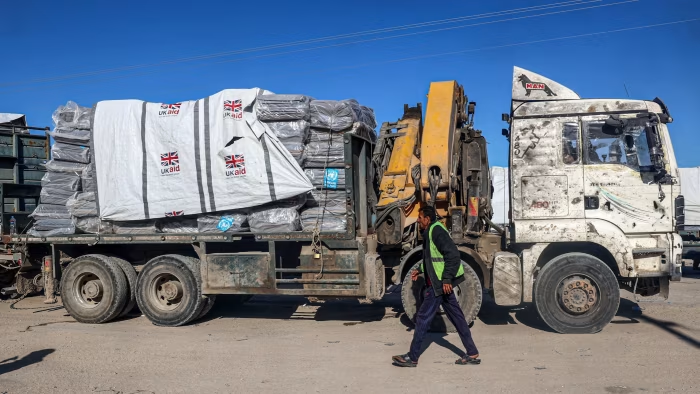
What’s Next for Israel and Gaza?
As they continues its military and political campaign, the humanitarian cost in Gaza continues to mount. The power and water crisis underscores the war’s far-reaching impact, affecting not only combatants but also millions of innocent civilians.
Whether they decides to ease these measures or escalate them further remains uncertain, but what’s clear is the urgent need for a diplomatic solution. For now, families in Gaza are left hoping for a break in the blockade — and a chance to rebuild their shattered lives amid the ongoing conflict.
Truce Teeters on the Edge as Mediators Push for Resolution
The fragile ceasefire between Israel and Hamas is hanging by a thread, with both sides refusing to budge on key issues that could determine the future of the Gaza Strip. While the truce initially brought relief to millions of Palestinians and Israelis, recent airstrikes, stalled negotiations, and worsening humanitarian conditions are threatening to reignite conflict. Mediators from Egypt, Qatar, and the United States are working tirelessly to salvage the agreement, but the deep-rooted animosity and unresolved political questions make progress painstakingly slow.
Security Concerns and Ongoing Airstrikes
Despite the cessation of large-scale hostilities, sporadic violence continues to erupt. Israel has conducted precision airstrikes against what it describes as imminent threats, targeting individuals accused of attempting to plant explosives near the border. The Israeli military maintains that these actions are necessary for national security and to prevent Hamas from regrouping during the ceasefire.
Israeli officials argue that Hamas cannot be trusted to honor the truce, pointing to the group’s history of using ceasefires to rearm and reorganize. “We cannot allow Hamas to exploit the pause in fighting to strengthen its military capabilities,” an Israeli Defense Forces (IDF) spokesperson said. Israel insists that any long-term peace deal must include strict security guarantees and the complete disarmament of militant factions within Gaza.
Hostage Crisis: The Sticking Point in Talks
One of the most contentious issues is the fate of hostages still held by Hamas. While some captives were released during the initial phase of the ceasefire, they demands the unconditional release of all remaining hostages before moving on to the next stage of negotiations. The Israeli government faces immense public pressure to bring back its citizens, with mass protests and vigils held across the country demanding stronger action.
Families of the hostages have accused the government of not doing enough, while far-right political factions call for a complete military takeover of Gaza to secure the captives’ freedom. Israel’s leadership remains firm in its position, with Prime Minister Benjamin Netanyahu stating, “We will not rest until every hostage is home, and Hamas no longer poses a threat to our people.”
On the other side, Hamas views Israel’s demands as unrealistic and claims that the hostage issue should be resolved as part of a broader deal that includes troop withdrawals and the easing of Gaza’s blockade. Hamas spokesperson Abdel-Latif Al-Qanoua said, “We have upheld our side of the agreement. It is now up to mediators to compel Israel to honor its commitments.”
Mediators face a daunting task as they try to bridge the gap between country‘s security-first approach and Hamas’ insistence on political concessions. Egyptian and Qatari officials have reportedly proposed a phased plan where hostages would be released in smaller groups in exchange for incremental troop withdrawals, but they remains skeptical of Hamas’ willingness to follow through.
Humanitarian Crisis in Gaza: Mounting Pressure on Israel
While negotiations drag on, the humanitarian situation in Gaza continues to deteriorate, putting under increasing international scrutiny. The suspension of goods and electricity has left many residents without access to basic necessities like clean water, food, and medical supplies. The United Nations and international aid organizations have warned that continued restrictions could lead to catastrophic loss of life, especially among children and the elderly.
Israel argues that lifting restrictions without concrete security guarantees would allow Hamas to rebuild its military infrastructure. However, global leaders are urging to show flexibility, warning that collective punishment could inflame anti-Israeli sentiment and fuel future cycles of violence. “We understand Israel’s security concerns, but humanitarian aid must not be used as a bargaining chip,” a senior UN official said.
Beyond Gaza, Israel’s actions are closely watched by other regional players, including Iran and Hezbollah, who have their own stakes in the outcome of the conflict. Israel is also balancing relations with Arab nations that have normalized ties through the Abraham Accords, some of whom are pushing for a more humanitarian approach to Gaza in hopes of preserving regional stability.
The outcome of the negotiations could redefine Israel’s standing in the Middle East and influence future peace efforts with the Palestinians. If they manages to secure a deal that includes hostage releases and long-term security arrangements, it could strengthen its position as a regional power. On the other hand, a breakdown in talks could plunge Gaza into deeper chaos and potentially draw into another prolonged conflict.
As the next round of talks approaches, the fate of the truce — and the people caught in the middle — remains uncertain. Israel is unlikely to back down from its core demands, while Hamas shows no signs of abandoning its resistance narrative. The coming weeks will be critical, as mediators try to prevent the collapse of the ceasefire and steer both sides toward an elusive, lasting peace.
For now, the people of Gaza continue to endure immense suffering, while remains on high alert, knowing that a single spark could reignite one of the most volatile conflicts in modern history.

